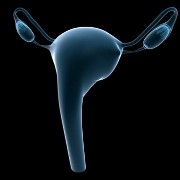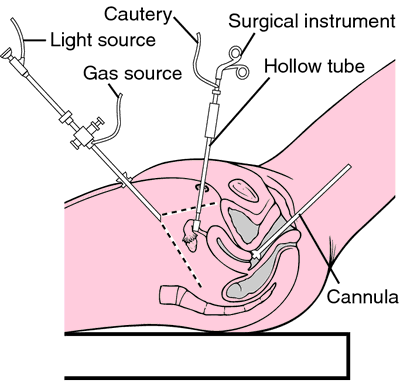 Photo: Getty Images
Photo: Getty Images
Endometriosis is the name of a painful medical condition where cells normally only found in the endometrium (cells of the uterine lining) appear elsewhere in the body. It is unknown as to how these cells come to be outside of the uterus.
Many body systems are in play. Factors of biology, environment and genetics interact, making it difficult to separate cause and effect.
One working theory explores possible problems with the immune system.
According to the University of Maryland Medical Center, it is possible that women with endometriosis may have faulty immune systems that are not targeting and removing endometrium growing outside of the uterus.
Research suggests that endometriosis may be an autoimmune disorder, as the body seems unable to differentiate properly between cells that are "self" and "not-self". The immune system incorrectly targets cells that are part of the body as though they were foreign toxins that must be destroyed.
Conversely the immune system may not correctly recognize cells that aren't where they belong, and don't clear them out, allowing in the case of endometriosis for the painful accumulation of endometrium cells elsewhere.
Women with endometriosis seem prone to other inflammatory autoimmune conditions like lupus, multiple sclerosis and rheumatoid arthritis. It's unclear as to whether endometriosis is itself an autoimmune condition or whether it is a consequence of another autoimmune disorder.
In the October 2002 issue of Human Reproduction, researchers from the National Institute of Child Health and Human Development (NICHD), the George Washington University, and the Endometriosis Association concurred that women with endometriosis are at greater risk of having autoimmune disorders.
Their research, which surveyed 3,680 women with endometriosis, also indicated that women with endometriosis have a higher incidence of fibromyalgia and chronic fatigue syndrome. Women with endometriosis also have higher incidence of eczema, allergies and asthma.
According to the Director of NICHD, Duane Alexander, M.D., learning more about the immune system may help identify the causes of endometriosis and may help to develop effective treatments.
A study performed by the NICHD's Pediatric and Reproductive Endocrinology Branch indicated that women with endometriosis are more likely than other women to have autoimmune diseases like lupus erythematosus, multiple sclerosis, rheumatoid arthritis and Sjogren's syndrome.
They had a high incidence of chronic fatigue syndrome and fibromyalgia, and 20 percent of the women had more than one autoimmune condition.
This group of women had a higher than normal incidence of hypothyroidism, which may also be an autoimmune condition. The study also found higher rates of allergies and asthma for women with endometriosis than for other women.
Resources: Visit Jody's website and blog at http://www.ncubator.ca and http://ncubator.ca/blogger





Add a CommentComments
There are no comments yet. Be the first one and get the conversation started!